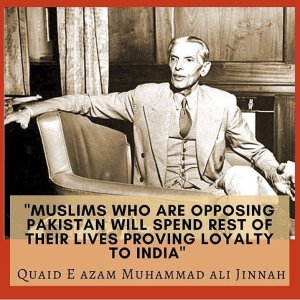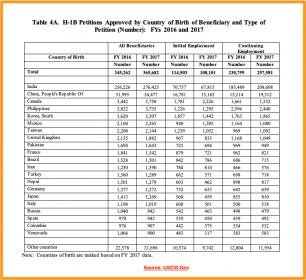Cpt. Rishwat
T20I Captain
- Joined
- May 8, 2010
- Runs
- 43,439
mukulika banerjee
Today is the 70th anniversary of India’s constitution coming into force. It was finalised after independence from British rule, and January 26 is celebrated each year as Republic Day. When I was a child, my grandmother and I would anxiously scan the Delhi skies for rain, desperate to attend the great parade on the majestic Central Vista, not just watch it on television. She was full of stories about the vanished world of maharajas and their pomp, of bejewelled elephants and horses flashing rubies, and she loved the parade for the memories it prompted.
I, too, loved the colourful military regiments in magnificent uniforms and starched turbans, the myriad festive floats showing India’s diversity of language, ecology, religion, food and culture and the grand finale of fighter jets whirling the Indian tricolour in the sky. Combining Latino carnival with Soviet-style militarism, the Republic Day parade always thrilled.
In 1950, when India became a democratic republic, granting citizens universal suffrage despite the widespread poverty and illiteracy, its leaders were ridiculed abroad for their overambition. Even Clement Attlee, the British prime minister, although more warmly disposed than his predecessor, Winston Churchill, advised caution.
But the plans were deliberately audacious, intended to establish a new template of republican nationalism that was to be pluralist, inclusive and universal, rejecting the fatal European models of nations based on a single language, religion or ethnic group.
Ever since, the Republic Day parade has celebrated India’s constitutionally enshrined diversity.
But this year’s parade takes place amid a growing assault on those values. For several years, the Hindu nationalist government of the prime minister, Narendra Modi, has been systematically undermining the status and independence of the republic’s key institutions, including those, such as the supreme court and the election commission, that help to safeguard minority rights.
More recently the government has blockaded the Muslim-majority population of Kashmir, suspending civil rights. India slipped 10 places in the Democracy Index in 2019 because of such “erosion of civil liberties”. Then, last month, the government passed an amendment that ties Indian citizenship to religion — quite contrary to the constitution.
The new law fast-tracks the granting of citizenship to illegal immigrants who apply for it, provided they belong to one of several listed religions — none of them Islam.
The government argues that this provides refuge to threatened religious minorities in the predominantly Islamic Pakistan, Bangladesh and Afghanistan, but it says nothing about persecuted Muslims in any neighbouring countries including Burma.
The amendment is linked to the new National Register of Citizens. Although India already has the world’s largest biometric digital identification database, the new register empowers local bureaucrats to require any person whose citizenship status they deem “doubtful” to produce proof of their date and place of birth, and those of their parents.
Many Indians, especially the poor, lack these documents — so the government has said they too can be granted citizenship under the amendment. But, of course, the amendment does not apply to Muslims — of whom India has 200m. They figure disproportionately among the poor who lack documents, and are most vulnerable to being deemed “doubtful” by increasingly discriminatory officials. Already 32,000 people have been identified as “illegal”, and the construction of vast detention centres for those the home minister, Amit Shah, calls “termites” is well under way.
So Indian citizenship is being linked to and made conditional on religious affiliation for the first time — in breach of the secular principles of the constitution. The combination of the register and the citizenship amendment is nakedly anti-Muslim in intent and practice and continues the stated ideological agenda of Modi’s Bharatiya Janata Party of making India a Hindu nation.
But India’s citizens are fighting back, taking to the streets, with women in the forefront, organising protests on a scale not witnessed for decades, striving to reclaim the republic. The government has cracked down in response. It has invoked the old colonial National Security Act in the capital, which allows for detention without explanation for up to a year.
Protesting students have been brutalised by mobs or by police themselves; 30 deaths and hundreds of beatings and detentions have been reported outside Delhi. Undaunted, tens of thousands, including lawyers, academics and retired civil servants, from all religions and led by the young, have persisted in their demonstrations, carrying the national flag and copies of the Indian constitution, reciting its preamble and singing the national anthem.
So, while this 70th anniversary could and should have been a celebration of India’s unlikely success as a democratic republic, it has been grievously undermined by its own government.
Watching these events from a dark and rainy London, I briefly wondered if I was overreacting. But then I saw that the chief guest at the parade is to be the populist president of Brazil, Jair Bolsonaro; that the floats from states, such as Kerala, that have resisted the government’s agenda have been excluded; and that the hymn Abide with Me, loved by Gandhi, military men and millions of Indians, which traditionally ended the celebrations during beating retreat, has been axed — no doubt as being too Christian, too foreign.
No, my late grandmother would not have wanted to go to the Republic Day parade this year.
Mukulika Banerjee is director of the LSE South Asia Centre and author of Why India Votes
https://www.thetimes.co.uk/edition/...es-a-mockery-of-indias-constitution-hhg209brf
A very strong opinion, but isn't she really just saying it how it is? How did India end up here?







